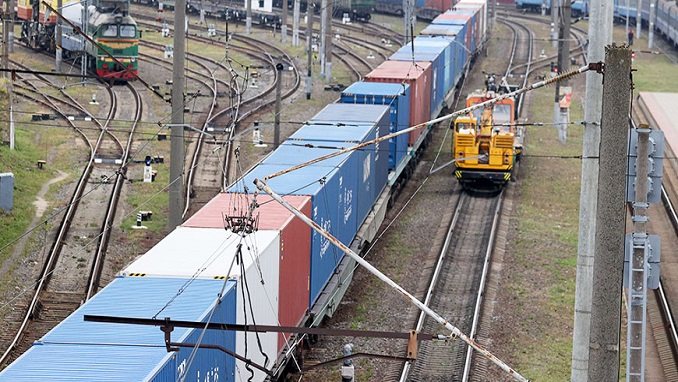Belarusian Railways held on Thursday a roundtable session in Astana, Kazakhstan, aimed at the promotion of its freight transportation and logistics potential for transporting foreign trade cargoes to and from Kazakhstan.
Chaired by the head of Belarusian Railways, Vladimir Morozov, the roundtable session that took place at the premises of the Belarusian embassy in Kazakhstan gathered over 80 participants from about 40 Kazakh companies specializing in mining, oil extraction, chemical and gas industry, metallurgy, agriculture, shipping companies, and transport.
The round table was also attended by the top managers of Kazakhstan Temir Zholy and its daughter enterprises, representatives of Kazakh national associations and unions of transport companies, as well as representatives of Belarusian enterprises belonging to timber, woodworking, and food industry, transport, and forwarding companies.
During the discussion, Belarusian Railways and Kazakhstan Temir Zholy presented their logistic and transport potential, in particular, their ability to transport freight between Belarus and Kazakhstan and in transit via the two countries.
Belarusian Railways’ official forwarding company BTLC (Belintertrans – Transport-Logistics Center) also presented its capabilities and shipping services along.
After presenting the joint efforts to organize freight transportation in containers between China and Europe and between Belarus and China, opinions and proposals were exchanged about further development of freight transportation between Belarus and Kazakhstan with an accent on the unhindered shipment of freight to China in transit via Kazakhstan.
Participants also discussed the development prospects of existing projects and relevant transport and logistic solutions and further steps to improve the effectiveness of joint work and ensure the realization of new avenues of cooperation in railway logistics.
The event has been organized after representatives of the private sectors of Kazakhstan and Belarus expressed interest in direct communication regarding issues in railway logistics, which were previously limited to a certain degree by COVID-19 prevention measures.



